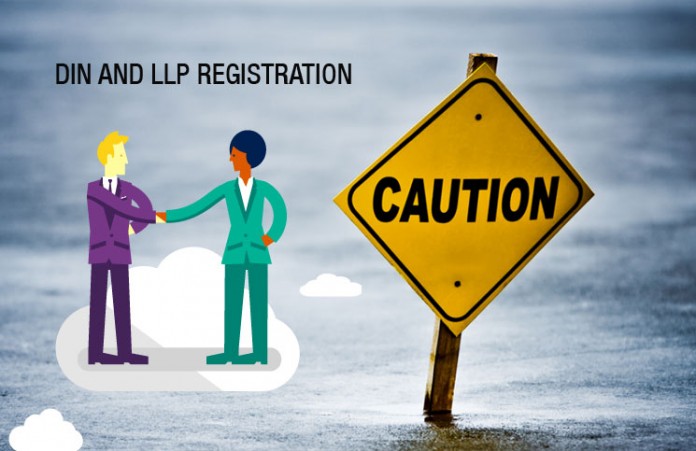In this blog post, Mayank Garg, a student pursuing his BBA LLB (3rd Year) at University of Petroleum and Energy Studies, Dehradun and a Diploma in Entrepreneurship Administration and Business Laws by NUJS, critically analyses the VPP scam commonly seen in the incorporation of a company.
Introduction
Scams are in layman’s language is any intentional deceptive act or operation or schemes that are designed to con you or steal your personal data. Scammers use personal data either from public sources or any other means to commit identity fraud. The whole process goes in a silent manner as people who are scammed are too embarrassed to speak up about their experience and seek help.
The scam can take place in any form including e-mails, door-to-door sales person or by uninvited mail, etc. Scammer targets lots of people, often for small amounts of money and overseas is the chief area for all these activities.
Various types of scams were listed in the previous years from investment scams to property promoters who invite you to ‘exclusive’ property investment seminars with case studies to sell their schemes. New scams are always evolving, so it’s important to look out for warning signs.
Out of these scams, in the past scenario, there reported Door-to-Door scams i.e. a salesperson selling fake or worthless products and more precisely important cases have been registered of Postal or mail scams as well. Scammers get the information of an individual or corporation from public sources and use their personal information to earn profits by cheating or fraudulent means.
Value Payable Post (VPP Scam)
In this whole umbrella of Scam, there exists a VPP (Value Payable Post)[1] Scam. Various book publishing houses, as per the new rules of Ministry of Corporate Affairs (MCA), get the information from the official MCA website of the newly registered companies and send them various articles like books, journals, a copy of registration certificate, etc. asking a huge amount of money through VPP Post. All this are packed in such a manner that it looks like MCA have sent all this to the company’s employees. Stuff like books, which seems to informational but are of no use to the company directors like rules and regulations of Companies, copy of Registration certificate, which is available online and could be downloaded at a single click, are sent to the newly registered companies asking for a huge amount of money. Most of the people become the prey of this scam and pay the amount for the post. In addition to this, immediately after filling the application of Director Identification Number (DIN), the information of the applicant is provided on the site of MCA and using this information, scammers send a VPP Post containing the junk books or reading materials requesting a huge amount of money. After looking at the package, the receiver gets convinced that it has been sent by MCA and pay the amount for it.
Critical Analysis
Now the biggest question here arises, do we have sufficient laws to stop all these scams? Or are the organs of the government (i.e. Executive, Legislature and Judiciary) taking appropriate action or working properly to solve these issues?
If we consider the particular transaction under the ambit of Indian Contract Act, 1872, then the act defines the terms Fraud, Misrepresentation and also gives the conditions of the valid transactions under section 10[2] which validates the contract to be voidable in such situation. In addition to this, according to Indian Postal Act view, “ In particular and without prejudice to the generality of the foregoing power, such rules may direct that no postal article shall be so sent unless the sender declares that it is sent in execution of a bona fide order received by him.[3]” In addition to this, Indian Penal Code, under section 415 to section 420, describes the scope of  cheating along with the punishment for the same. Hence, India has sufficient laws to cope up with the situation. With consideration of all these, coming to the question of implementation of existing laws, various government and non-government agencies, organisations, courts, consumer forums are set up to check the situation of fraud in such cases. But people still now dares to commit fraud in the economy which means that there are parameters on which the country is not focusing on or laws are not so strictly implemented so as to check the overall situation.
cheating along with the punishment for the same. Hence, India has sufficient laws to cope up with the situation. With consideration of all these, coming to the question of implementation of existing laws, various government and non-government agencies, organisations, courts, consumer forums are set up to check the situation of fraud in such cases. But people still now dares to commit fraud in the economy which means that there are parameters on which the country is not focusing on or laws are not so strictly implemented so as to check the overall situation.
Now the chief question arises that whether such acts by the companies come under the ambit of scam or fraud or cheating?
Various persons will have multiple opinions on this question. According to me, this does not constitute a scam or fraud or cheating. This act is merely an offer to enter into a contract by way of a post like a salesman of the company going door-door for selling the product. In case of Value Payable Post, it necessary to note that the receiver has the option to reject the parcel and in addition to this, it is necessary for each and every person to note that Ministry of Corporate Affairs does not send any document or certificate by post because of their online policy and the same does not amounts to fraud as well by the companies.
Not Amounting To Fraud
“Fraud is such false assertion, active concealment, promise without the intention of performing it, any other deceptive act, or any act declared as fraudulent.”
In order to constitute fraud, such acts should have been done by the party to the contract, or by any other person with his connivance, or by his agent and with intent to deceive the other party thereto or his agent, or to induce him to enter into the contract. There is no duty upon parties to speak about facts likely to affect the other party’s consent to the contract, and mere silence does not amount to fraud, unless the circumstances of the case show that there is a duty to speak, or silence is, in itself equivalent to speech.
In this case, firstly there is no contract it is merely a proposal[4] by the company by virtue of value payable post to enter into a contract. It is clearly written on the packet the name of the company from where it has come, Ingredients in the packet and the amount payable. Now it becomes the duty of the receiver to acknowledge whether the products in the packet are useful to me or not. Talking about the company, it is there only to earn profits. If the information of the newly registered company or Director Identification Number or Registration of LLP is made available by the government itself, then the company is doing business by sending the articles to them. The elements of fraud include:
(1) the suggestion as a fact, of that which is not true, by one who does not believe it to be true; (2) the active concealment of a fact by one having knowledge or belief of the fact;
(3) a promise made without any intention of performing it;
(4) any other act fitted to deceive;
(5) any such act or omission as the law specially declares to be fraudulent.[5]
In Banque Financiere de la Cite SA v Westgate Insurance Co Ltd,[6] Slade J said:
“The general principle- there is no obligation to speak within the context of negotiations for. An ordinary commercial contract… is one of the foundations of our law of contract, and must have been the basis of many decisions over the years. There are countless cases in which one party to a contract has in the course of negotiations failed to disclose a fact known to him which.”
In this case, there is no concealment of fact as the packet itself discloses the name of the company from where it has come, and disclosure of all the articles present in the parcel and the party has no obligation to speak. A mere reason that it looks like a government parcel could be no argument to challenge the validity of the contract.
Silence as to facts, as the Explanation to the present section, lies down, is not per se fraud. Mere silence is not fraud unless there is a duty to speak, or unless it is equivalent to speech. There are two qualifications to this rule. First, the suppression of part of the known facts may make the statement of the rest, though literally true so far as it goes, misleading as an actual falsehood. In such a case, the statement is false in substance, and the willful suppression which makes it so, is fraudulent.[7] Secondly, a duty of disclosure of particular defects in goods sold, or the like, may be imposed by trade usage. In such a case, omission to mention a defect of that kind is equivalent to express assertion that it does not exist.[8]
Where a vendor did not disclose to the purchaser of property about a material defect in the title that the property agreed to be sold was the subject matter of a pending litigation and attachment, the non-disclosure was held to be a fraudulent act and the purchaser was entitled to rescind the contract and claim back the earnest money.[9] “Where the lessor, knowing that two days after executing a lease in favor of her husband, she would cease to be the lessor and the lessee also knew the same, she executed the lease for a period subsequent to her ceasing to be the lessor, the transferee is not bound by such lease which was the outcome of a fraud.”[10]
Where the vendor made an express recital in the sale deed about the non-existence of mortgage, it was an active misstatement; and the exception to s 19 was not applicable.[11]
The articles send by the companies to the newly registered incorporations, the applicant of Director Index Numbers or Registration of LLP, as the information of all these are given by the Ministry of Corporate Affairs on their official site, do not amounts to fraud as on the packet itself discloses each and every information. Nowhere, on the packet, has any reference of MCA been given on the packet or by the delivery man. The parcel has been sent from the MCA is the only presumption made by the entrepreneurs and it is very clear from the interpretation of statutes that the law does not take care of any personal presumption and in law no presumption can be made.
Anyone can make an offer to another, and this is merely an offer to the entrepreneur, and not a binding compulsion, whether to accept it or not. If they claim that the books are useless in future, then it is the decision of them only while accepting the parcel and no influence of anyone were on them so as to accept it. Hence, this act done by companies does not amount to scam and the decisions are taken by the consumer forum in favor of entrepreneurs must be reviewed as law must treat each and every citizen equally, and justice, equity and good conscience must be kept in mind while deciding the matter.
[1] VPP is the service designed to collect payment from the receiver of the package for articles sent to them in the post. According to Section 34 of Indian Post Office Act, 1898, which describes the transmission by post of value payable postal articles, it is concluded that postal articles sent in accordance with the provisions of this section, i.e. the sum of money specified in writing at the time of posting by the sender of a postal article shall be recoverable on the delivery thereof from the addressee, add that the sum, so recovered, shall be paid by the sender, may be described as “Value-Payable” Postal Articles.
References:
[2] Indian Contract Act, 1872.
[3] Section 35 (2) (b), Indian Post Office Act, 1898.
[4] When one person signifies to another his willingness to do or to abstain from doing anything, with a view to obtaining the assent of that other to such act or abstinence, he is said to make a proposal.
[5] Section 17, Indian Contract Act, 1872.
[6] [1989] 2 All ER 952.
[7] Peek v Gurney [1861-73] All ER Rep 116.
[8] Jones v Bowden (1813) 4 Taunt 847.
[9] Jaswant Rai v Abnash Kaur (1974) ILR 1 Del 689.
[10] Hukum Chand v Hazra Begum AIR 1982 All 215.
[11] Ganpat Ranglal Mahajan v Mangilal Hiralal AIR 1962 MP 144.
 Serato DJ Crack 2025Serato DJ PRO Crack
Serato DJ Crack 2025Serato DJ PRO Crack










 Allow notifications
Allow notifications


